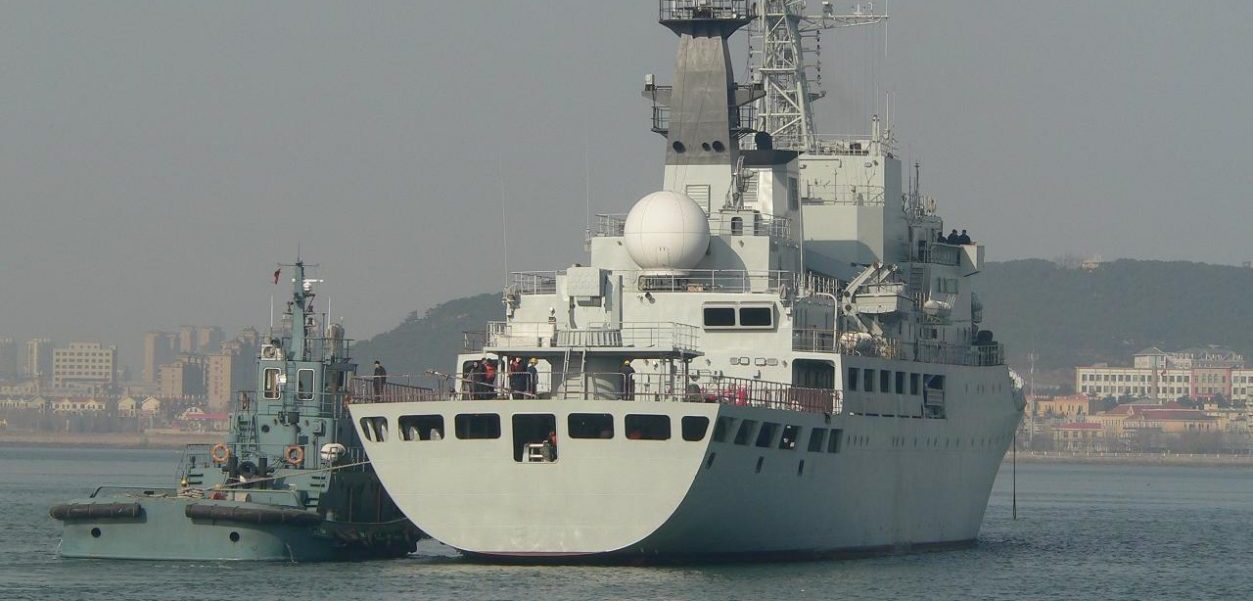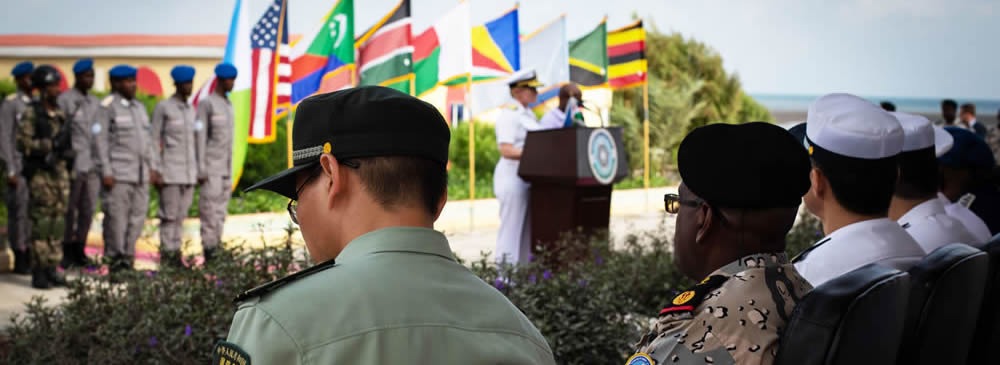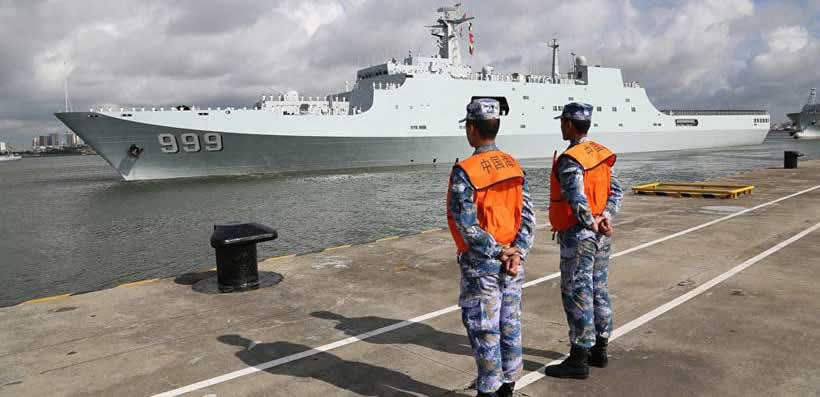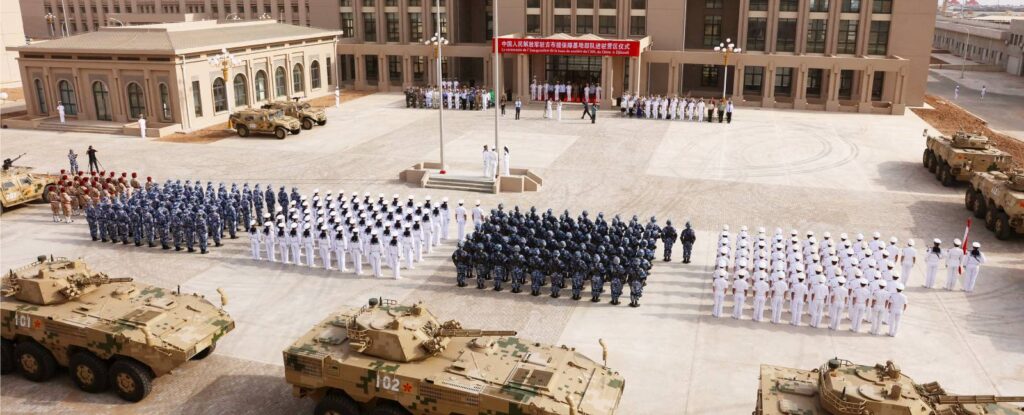
1.0 Introduction
The twenty-first century has placed Africa at the heart of global competition. Once considered peripheral, the continent now stands at the center of debates on shifting geopolitical alignments, trade connectivity and maritime security. Major Powers are repositioning Africa as a strategic theatre where their rivalries for influence, markets, and security access are actively contested.
Across the continent, this competition takes different forms. In North Africa it revolves around hydrocarbons and Mediterranean security. In West Africa it is shaped by counter-terrorism and democratic backsliding. In Eastern Africa the stakes are particularly pronounced. The region’s maritime corridors connect the Indian Ocean to Europe and the Middle East, while its hinterland is characterized by high-growth economies alongside fragile states vulnerable to external influence.
Djibouti’s geostrategic relevance was lost after the end of the Cold War as shifting power dynamics reduced the intensity of external competition in the Horn of Africa. Its prominence was reasserted in the aftermath of the September 11 terrorist attacks as the global war on terror expanded. Growing maritime insecurity in the Gulf of Aden and the wider western Indian Ocean further attracted renewed external military and strategic interest to the country.
Djibouti is strategically located at the Bab el-Mandeb Strait. This narrow maritime passage ranks among the most critical chokepoints in global trade and security, funneling vast volumes of energy and commercial flows between the Indian Ocean, the Middle East, and Europe.( Brooke-Holland, 2023). Djibouti hosts approximately eight foreign military bases, the highest number on the African continent. They span from Germany, Spain, Italy, France, the United States, the United Kingdom, China, and Saudi Arabia, all located within a remarkably short distance from one another. Russia and India have also signaled strong interest in establishing a presence, underscoring the country’s role as a crowded epicenter of great power competition. (Politics Today, 2021)
The presence of multiple foreign military bases in Djibouti presents both an opportunity and vulnerability. On one hand, this presence generates revenue, visibility, and recognition of the country’s geostrategic importance. On the other hand, it heightens exposure to geopolitical rivalries, external dependency, and the risk of entanglement in conflicts beyond Djibouti’s control. This commentary therefore aims to examine Djibouti’s role in great-power competition in Eastern Africa and to evaluate whether its strategic geography serves as a foundation for resilience or a source of vulnerability.
2.0 Key Issues
2.1 Historical Legacy of Base Diplomacy

Djibouti’s role as a host for foreign militaries began with French colonial rule in 1884 and was reinforced during the Cold War through France’s continued presence and the United States’ establishment of Camp Lemonnier, its only permanent base in Africa (Brooke-Holland, 2023; Stronski, 2019). China’s 2017 base at Doraleh, integrated into Belt and Road port investments, added a new dimension of “base diplomacy” (Lynch, 2024).
This legacy has been profitable, generating more than $125 million annually in lease revenue (Bugra Sari, 2020). It has also positioned Djibouti at the centre of global security networks. Yet, the costs are evident: dependency on external actors risks limiting economic diversification, and the persistence of foreign entitlements recalls colonial-style arrangements. Djibouti benefits from strategic rents, but its sovereignty and long-term resilience remain tethered to the shifting priorities of great powers.
2.2 Strategic Geography and Maritime Choke Points
Located at the Bab el-Mandeb Strait, Djibouti controls one of the world’s most critical chokepoints, through which 25 percent of global seaborne oil and 15,000 ships transit annually (Brooke-Holland, 2023). This geography became even more significant during the Red Sea crisis, when Houthi attacks reduced container traffic by 50 percent in early 2025, with some months in 2024 recording declines of up to 80 percent (UNCTAD, 2025).

Djibouti’s stability has made it indispensable for global powers responding to piracy, terrorism, and regional conflict. This brings security guarantees and international attention. The downside, however, is extreme vulnerability to external shocks. Shipping disruptions or geopolitical crises can devastate lease revenues and trade flows, exposing the limits of relying on geography alone. Djibouti monetizes its position, but the challenge is converting rents into sustainable, broad-based resilience.
2.3 Multiplicity of Great-Power Objectives
Djibouti’s bases host actors with overlapping but divergent priorities: the United States focuses on counter-terrorism in Somalia and Yemen, France on its Indian Ocean and Francophone security footprint, and China on safeguarding Belt and Road sea lanes (Stronski, 2019; Lynch, 2024). Japan, the EU, and the UAE add further complexity with anti-piracy patrols and bilateral agreements (Gavin, 2021).
This multiplicity strengthens Djibouti’s bargaining power, allowing it to diversify partners and extract infrastructure investments. It has also yielded real results, such as reducing piracy in the Gulf of Aden from 163 incidents in 2011 to fewer than 10 annually by 2020 (International Maritime Bureau, 2021). But overlapping agendas also generate friction. The United States views China’s presence as a challenge, while China perceives Western patrols as constraints on its shipping routes. Djibouti gains from competition but risks being caught in great-power rivalries that could destabilize its delicate balancing act.

2.4 Environmental and Social Costs of Militarization
Foreign military presence has improved Djibouti’s infrastructure and revenues, but it has also imposed environmental and social costs. Naval fuel discharges and base expansions threaten fragile Red Sea ecosystems (UNEP, 2022), while perimeter enforcement has displaced fishing and farming communities (Downs et al., 2020). The influx of foreign personnel strains water, housing, and urban services, often outpacing local planning.
These challenges risk creating a militarized enclave economy, where state revenues grow but local communities bear the burden. The upside is that base-related investments in ports, roads, and power grids can serve dual civilian and military purposes. Yet without robust regulation and redistribution, the imbalance will persist. Djibouti has successfully monetized its geography, but unless environmental safeguards and social investments are built into future agreements, militarization could erode legitimacy and deepen inequality.
3.0 Conclusion
Djibouti’s transformation into a linchpin of global security illustrates how a small state can leverage geography, history, and external partnerships to exert influence far beyond its borders. Yet, the same dynamics that sustain its prominence also generate vulnerabilities: dependence on foreign rents, exposure to external shocks, and the risk of entanglement in great-power rivalries. By reinforcing sovereignty, channeling revenues into resilience, coordinating external actors, and integrating environmental and social safeguards, Djibouti can ensure that its strategic position becomes a source of long-term stability rather than contestation. The choices made now will determine whether Djibouti remains merely a staging ground for others or consolidates its role as an active shaper of regional and global security.
4.0 Policy Recommendations

4.1 Reinforce Sovereignty in Base Agreements
Building on the historical legacy of base diplomacy, Djibouti should insist on transparent, time-bound, and regularly reviewed agreements with all foreign militaries. These should include safeguards for sovereignty, revenue-sharing formulas, and clear exit provisions to avoid reproducing colonial-style dependencies. External partners, particularly the United States and China, should recognize that their long-term legitimacy depends on treating Djibouti as a sovereign partner rather than a passive host (Brooke-Holland, 2023; Stronski, 2019).
4.2 Convert Strategic Geography into Resilience
Djibouti’s control of the Bab el-Mandeb generates rents, but these revenues must be channeled into dual-use infrastructure such as transport, energy, and communications that serve both civilian and military needs. Investment in food security and logistics diversification would reduce vulnerability to shocks like the Red Sea crisis, where shipping fell by 50 percent in early 2025 (UNCTAD, 2025). Foreign partners should also commit to disaster-preparedness and infrastructure resilience programs tied to their basing privileges.
4.3 Manage Multiplicity through Coordination
To avoid friction from competing great-power agendas, Djibouti should convene regular trilateral or multilateral consultations among major powers stationed on its soil. Joint training, intelligence sharing, and community-focused projects can turn overlap into synergy, much as coordinated patrols helped reduce piracy incidents from 163 in 2011 to under 10 by 2020 (International Maritime Bureau, 2021). Greater coordination would allow Djibouti to remain a neutral broker while reducing the risks of strategic rivalry.
4.4 Integrate Environmental and Social Safeguards
Future base agreements must incorporate binding environmental standards and social investment clauses. Revenues should be earmarked for coastal ecosystem protection, water security, and livelihood restoration for displaced fishing and farming communities. External militaries could expand community-focused projects and corporate social responsibility initiatives, reducing the perception of a militarized enclave economy and ensuring that strategic rents translate into shared national benefits (UNEP, 2022; Downs et al., 2020).
5.0 References
Brooke-Holland, L. (2023). The Horn of Africa and the Red Sea. House of Commons Library.
Bugra Sari, S. (2020). Africa: A constant battlefield of great power rivalry. Mersin University Journal of Social Sciences Institute, 3(1), 45–62.
Colby, E., & Mitchell, W. (2020). The age of great-power competition: How the Trump Administration refashioned American strategy. Foreign Affairs, 99(1), 20–32.
Downs, E., Becker, J., & deGategno, P. (2020). China’s military support facility in Djibouti: The economic and security dimensions of China’s first overseas base. CNA.
Gavin, M. D. (2021, May). Major power rivalry in Africa. Council on Foreign Relations. https://www.cfr.org
International Maritime Bureau. (2021). Piracy and armed robbery against ships: Report for 2020. ICC International Maritime Bureau.
LaGrone, S. (2023, December). U.S. Navy launches Operation Prosperity Guardian. USNI News.
Lynch, T. F. (2024). The future of great power competition: Trajectories, transitions, and prospects for catastrophic war (Vol. 114). National Defense University Press.
Stronski, P. (2019, October). Late to the party! Russia’s return to Africa. Carnegie Endowment for International Peace. https://carnegieendowment.org
Terefe, F., & Tesfaye, M. (2023, October). Militarization of the Horn of Africa and what this means for regional security. Good Governance Africa. https://gga.org
United Nations Conference on Trade and Development (UNCTAD). (2025). Global trade update: January 2025. UNCTAD.
United Nations Environment Programme (UNEP). (2022). State of the environment report for the Red Sea and Gulf of Aden. UNEP Regional Office for West Asia.
Politics Today. (2021, March 17). How Djibouti surrounded itself by military bases—from China, the U.S., France, UK, Germany, and others. Politics Today. Retrieved from https://politicstoday.org/djibouti-surrounded-by-military-bases-of-china-us-france-uk-germany-others/
